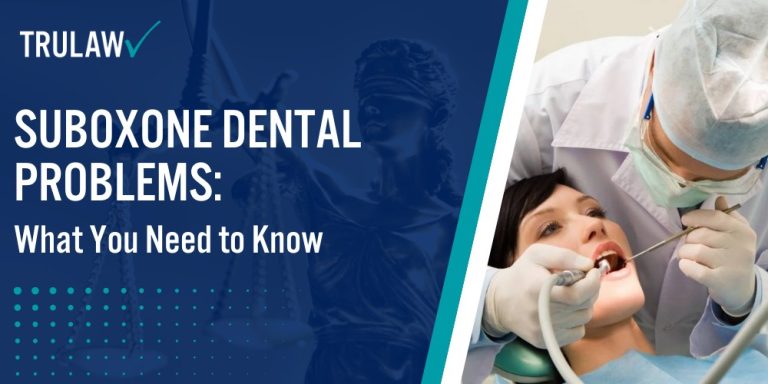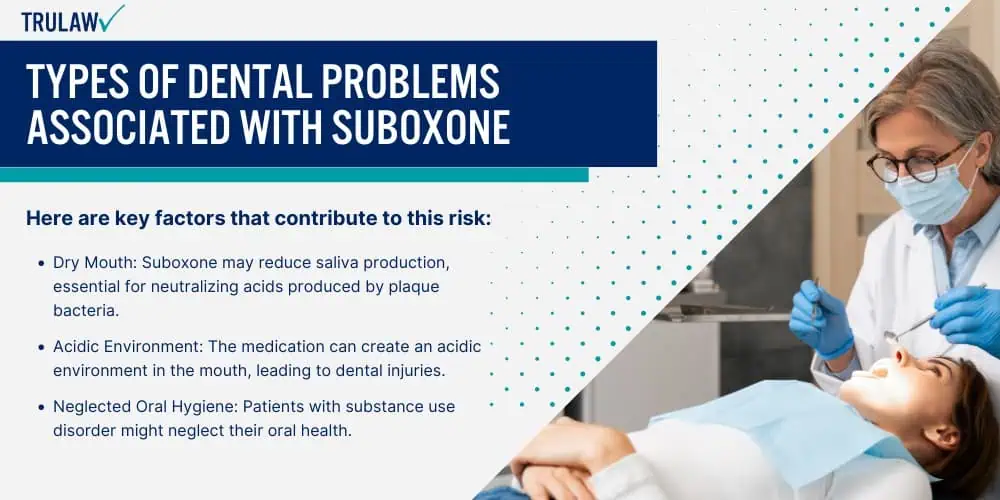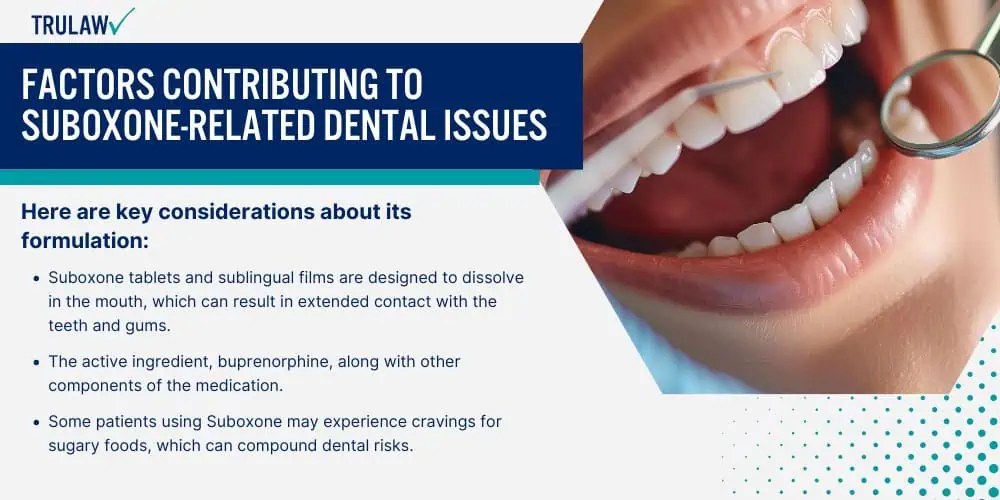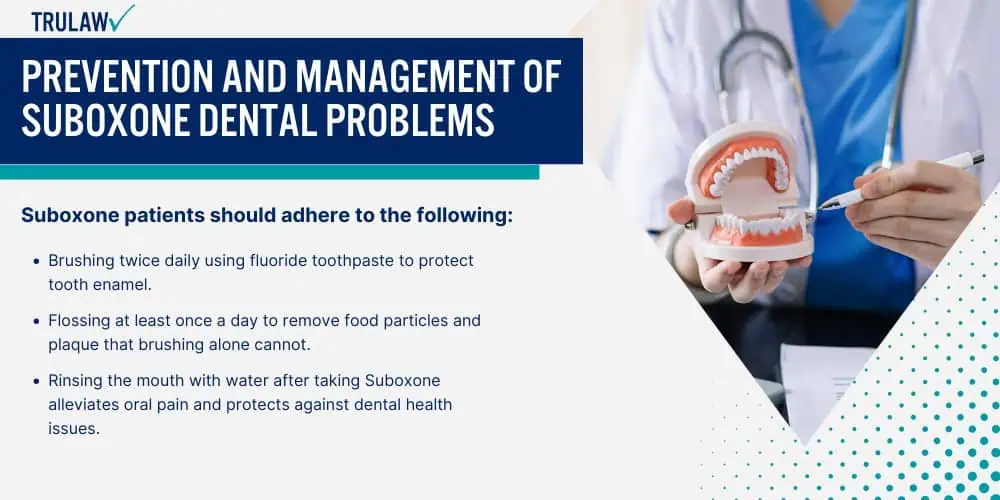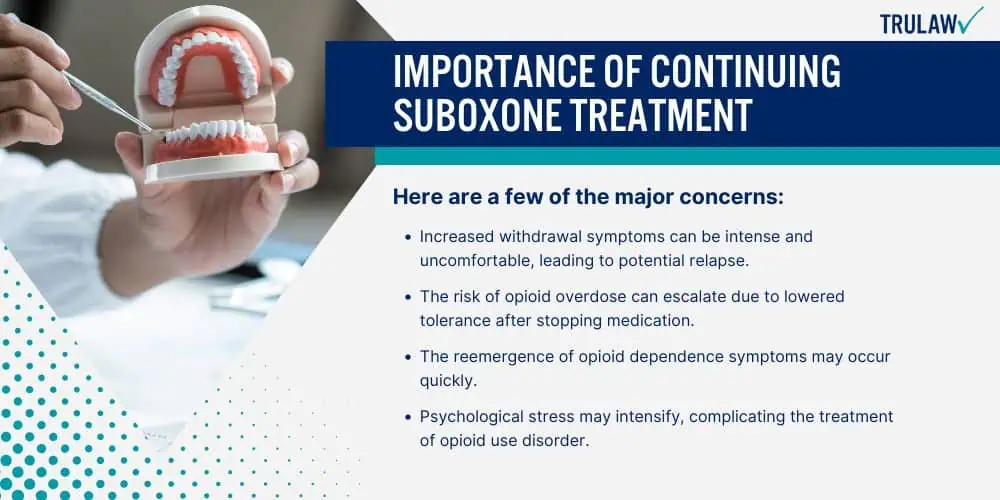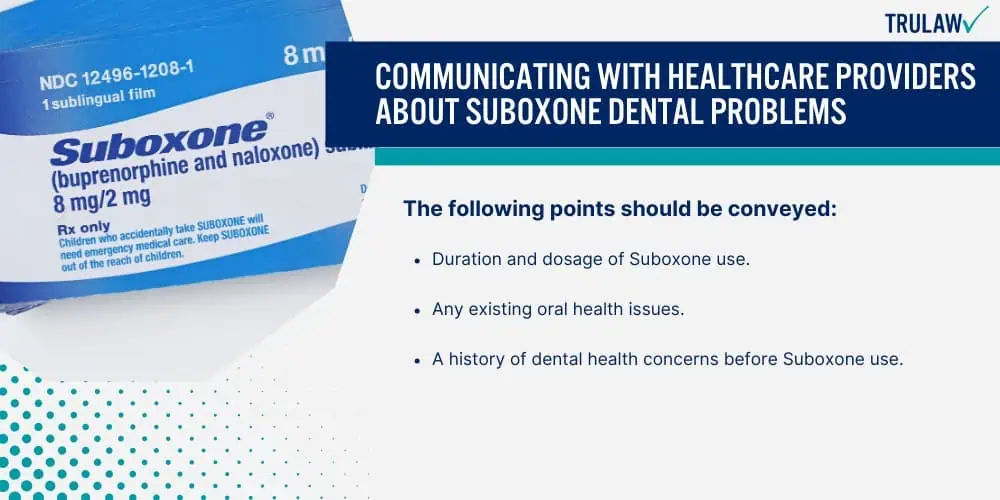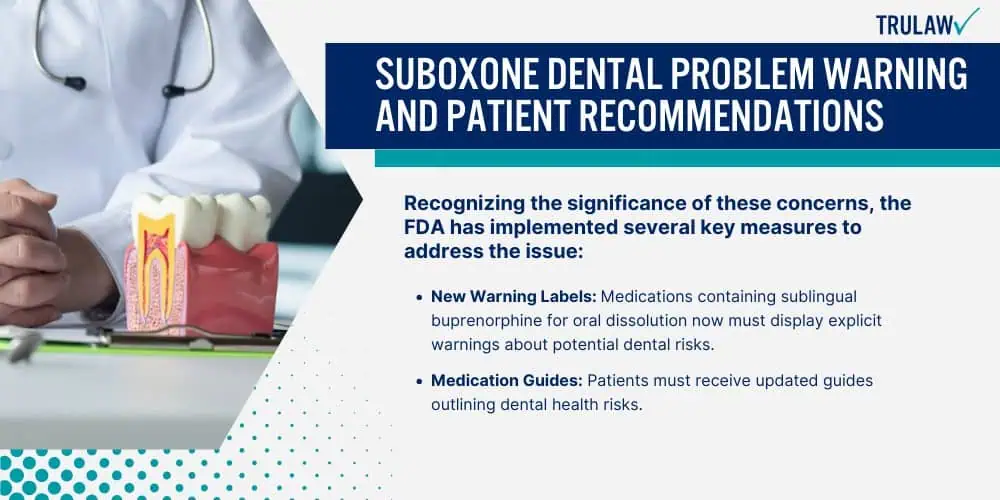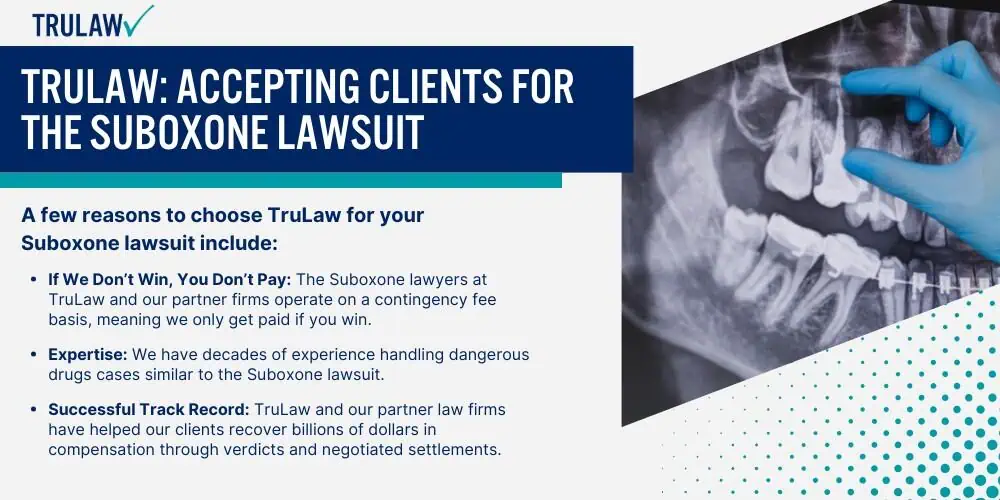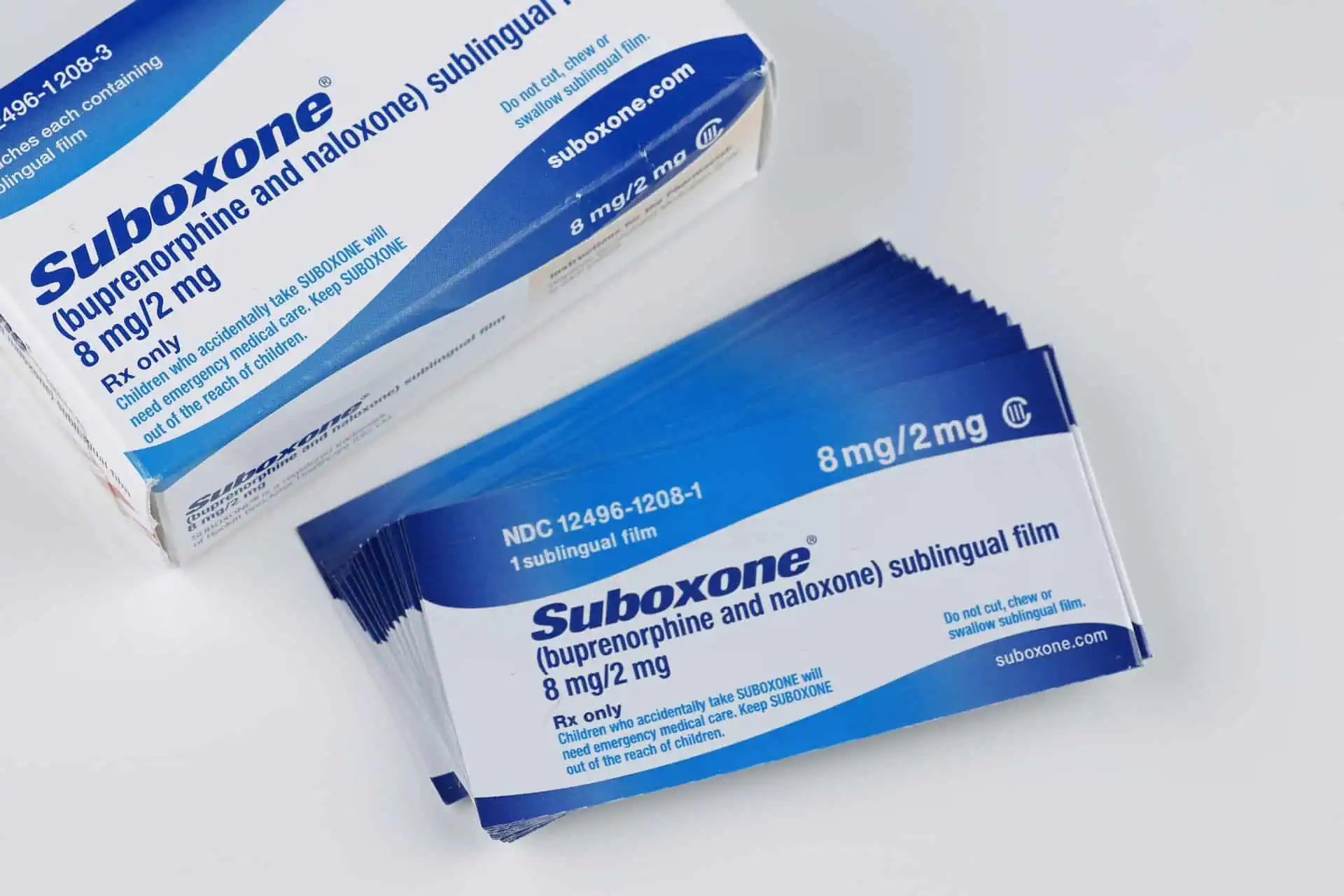Suboxone, a medication combining buprenorphine and naloxone, is widely recognized for its effectiveness in treating opioid dependence.
This section examines the advantages and potential dental consequences associated with Suboxone treatment.
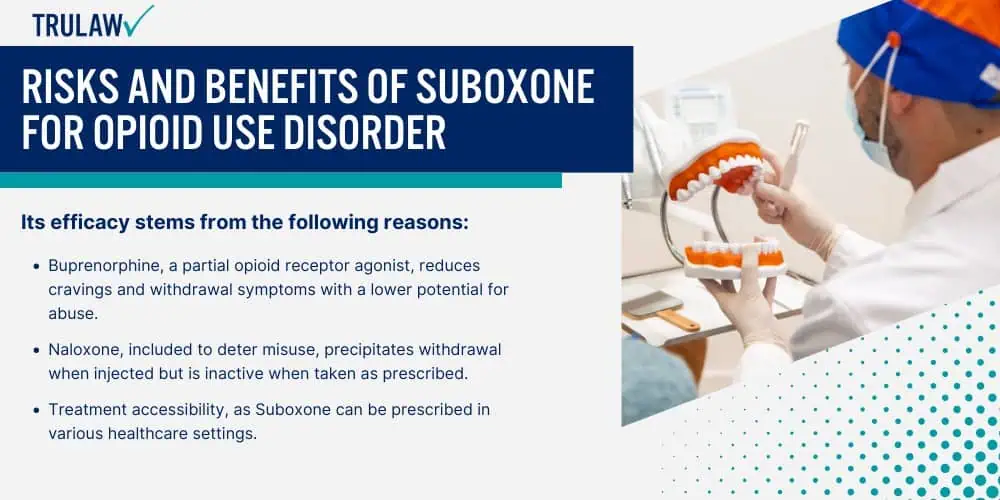
Importance of Suboxone in Treating Opioid Addiction
Suboxone plays a vital role in the management of opioid addiction by mitigating withdrawal symptoms and curbing the urge to misuse opioids.
Its efficacy stems from the following reasons:
- Buprenorphine, a partial opioid receptor agonist, reduces cravings and withdrawal symptoms with a lower potential for abuse.
- Naloxone, included to deter misuse, precipitates withdrawal when injected but is inactive when taken as prescribed.
- Treatment accessibility, as Suboxone can be prescribed in various healthcare settings.
- It serves as a harm-reduction strategy, lowering the risk of overdose and other complications related to opioid misuse.
Weighing the Benefits and Risks of Suboxone Treatment
Understanding the balance between the benefits and associated risks of Suboxone is essential for patients and healthcare providers.
Bold action is taken to outline these factors:
- Suboxone’s effectiveness is well-documented in stabilizing individuals and improving their chances of recovery from opioid use disorder.
- It is considered safer compared with full agonists like methadone due to its “ceiling effect,” which limits respiratory depression risk.
- However, concerns about Suboxone dental problems have emerged, with the medication potentially causing dental caries, abscesses, or erosion when dissolved in the mouth.
- The FDA acknowledges these dental issues but reaffirms that the benefits for treating opioid use disorder outweigh these risks.
